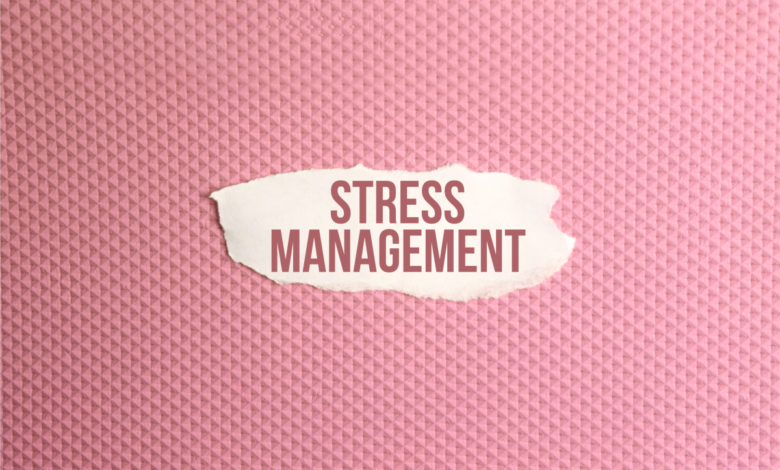
WHAT IS STRESS MANAGEMENT? – DEFINITION AND OVERVIEW
Stress and depression are silent killers, and it is extremely important to take early measures. Yes, it is true that you cannot avoid stress. However, it is also true that stress is very much manageable. You can try different stress management techniques and get help from a mental health specialist.
If you want to do it yourself, it is important to find out the reasons or facts that cause stress. Once you know the root cause, the treatment becomes easier.
What Is Stress Management?
Stress management is a broader term that includes psychotherapies and techniques that are used to control or reduce the stress levels in an individual. Generally, when we talk about stress management techniques, we talk about chronic stress. The basic purpose of these techniques is to motivate a person and improve his/her functionality. Here are some commonly used techniques for stress management.
How Do You Handle Stress? Stress Management Techniques
1- 4 A’s Of Stress Management
4 A’s of stress management (Avoid, Alter, Adapt, Accept) is one of the most common stress management techniques.
Avoid Unnecessary Stress
Every stressful situation is not necessarily bad. Therefore, rather than avoiding or escaping it, try to evaluate it and see how you can turn it to your advantage. Moreover, learn to say “No” to anything that is out of your reach or limits and maybe a potential cause of stress.
Alter The Situation
Sometimes we have to deal with a situation because there is no other option. In such situations, it is unwise to suppress or bottle up your emotions because it can lead to negativity and depression. So, it is better to talk to someone trustable and let your feelings out.
Adapt To The Situation (Stressor)
When you realize that it is impossible to change a situation/stressor, try to adapt to it. That said, try to change your perception about it and look on the brighter side. For instance, if you find studying as a stressful activity, you can think about the rewards you will get once you complete your course/degree. You can also divide the process into smaller milestones and accomplish them one by one. This will keep you motivated and reduce stress.
Accept The Things You Can’t Change.
As mentioned above, when you cannot change the situation/stressor, it is better to accept it and adapt accordingly. If you are a student, you will have to take exams, assignments, tests, etc., and you cannot escape it. Therefore, instead of running away from it, take it as a challenge and search for ways to do well.
2- Make Exercise As A Part Of Your Life
Physical workout is a medically proven way to control or reduce stress. Yoga, martial arts, sports, cycling, dancing, swimming, or even simple jogging can reduce the stress levels in your body. An intense 75-minute jogging or swimming session can be very helpful. If you prefer moderate exercise, a 2-hour daily moderate workout will do things nicely.
3- Keep Practicing Mindfulness Regularly
Mindfulness is one of the best forms of meditation. It is not something you can do only 10-15 minutes a day. Rather, you should practice regularly and make it a part of your life.
4- Never Compromise On Self-Care
“If it costs you peace, it is too expensive.” That said, self-care is an important part of stress management. Keep searching for ways that can give your pleasure and make things easier for you.
5- Muscle Relaxation And Deep Breathing
Stress can stretch your muscles, and this worsens the problem. Therefore, muscle relaxation can help you relieve stress. Stretching, hot shower, massage, or a good night’s sleep can help. Apart from that, practicing different breathing techniques can help reduce muscle tension and stress.
6- Follow A Balanced Diet Plan
A balanced diet plan can make you feel better and may control your mood swings. Try to add fruits, vegetables, lean protein, and whole grains to your diet. Most importantly, don’t skip a meal.
7- Make Smaller And Achievable Milestones
Whether you are chasing your professional or personal goals, just don’t rush it. When you think about the distance you have to travel; you start feeling stressed. However, if you divide the process into smaller milestones and achieve them one by one, it will not only boost your confidence but also reduce stress.
8- Adopt A Productive Hobby
You may not believe it, but a healthy hobby is a stress reliever. Giving 20-25 minutes to your hobby on a regular basis can keep you calm. You can try reading, sketching, play cards, solve puzzles, watch a movie, etc.
9- Talk To A Friend
Sometimes sharing the things that cause stress with a friend, colleague, a trusted clergyman, close family member, or a therapist can give you a soothing effect. If you have someone who closely listens to you, share your thoughts with them. This will make you feel a lot better.
10- Eradicate The Stress Triggers
They say, “nip the evil in the bud,” and you can do that to manage stress. Look out for the triggers or causes of stress. When you know what troubles you, you can try avoiding those situations or things.
Bottom Line
Stress management is the only way to reduce or cope with stress. To be honest, it is very difficult to avoid it. However, by following the above-mentioned techniques, you can keep the trouble at bay.
Disclaimer:
Any information provided on this article or our website is for entertainment purposes only and researched from the internet. Please consult your local professional or physician before using any information provided.


